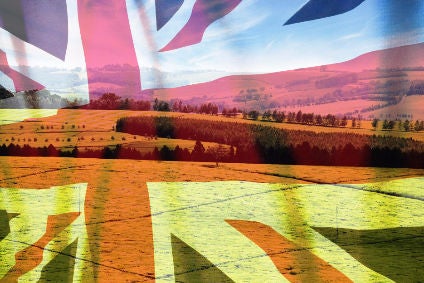
UK Environment Secretary Michael Gove has warned that the UK may not be able to export food to the EU in the event of a no-deal Brexit.
Speaking at the National Farmers’ Union conference today (19 February), he told the audience “if we leave without a deal then there will be significant costs to our economy – and in particular to farming and food production”.

Discover B2B Marketing That Performs
Combine business intelligence and editorial excellence to reach engaged professionals across 36 leading media platforms.
Gove added: “As things stand, just six weeks before we are due to leave, the EU still have not listed the UK as a full third country in the event of no deal being concluded.
“That means as I speak that there is no absolute guarantee that we would be able to continue to export food to the EU. I am confident we will secure that listing, but in the event of no deal the EU have also said they will impose strict conditions on our export trade.”
In a speech in which he also outlined the UK’s trading tariff plans in the event of a no-deal Brexit, Gove told the audience if the UK leaves the EU on 29 March without a deal the bloc has been clear it will levy the full external tariff on all food.
“That means an increase of at least 40% on sheep meat and beef, rising to well above 100% for some cuts. The impact on upland farmers and the carousel trade in beef would be significant and damaging,” he said.

US Tariffs are shifting - will you react or anticipate?
Don’t let policy changes catch you off guard. Stay proactive with real-time data and expert analysis.
By GlobalData“The vast majority of our sheep meat exports – 90% – go to the EU, France in particular. Tariffs at that level would increase prices dramatically. We know that other nations are hungry for that trade. Other EU nations – from Spain to Romania – would seek to supply French markets. And nations like New Zealand and Australia would still have tariff-free trade for a specified quota of sheep meat to the EU while we would have no such access in the event of no deal.”
He warned: “If European buyers do switch contracts because tariffs make our exports significantly more expensive it will be difficult to re-establish our market access even if those tariffs come down in the future.”
Gove said tariffs are not the only problem UK food producers and farmers would face.
“All products of animal origin entering the EU would face SPS [Sanitary and phytosanitary] checks. The EU’s current position is that 100% of imports would need to be checked. And, in order to be checked every import would need to go through a border inspection post.
“A huge proportion of our food exports to the EU currently go through Calais. As I speak there are no border inspection posts at Calais. None. The French authorities promise to invest in BIP [border inspection posts] capacity but, with just six weeks to go, we face considerable uncertainty over future arrangements.
“The requirement for checks will inevitably slow the processing of exports and, for every lorry that is delayed at Calais, there is a knock-on effect for other haulage and the rapid turn-around of roll-on roll-off ferries.
“We can expect, at least in the short term, that those delays in Calais will impede the loading of ferries, constricting supply routes back into Britain and furring up the arteries of commerce on which we all rely. That will only serve to increase transport costs for British exporters.”
He added UK exporters will also need to comply with new customs paperwork and new labelling will be required for UK products of animal origin exported to the EU. Gove also warned some sectors, such as organic food producers, may not have their products recognised as distinct until “some time after we leave”.
The minister suggested all of these issues – linked to the UK leaving the EU without a trade deal – will “create significant difficulties for food exporters” and that small businesses and in particular small livestock farmers would be the worst hit.





